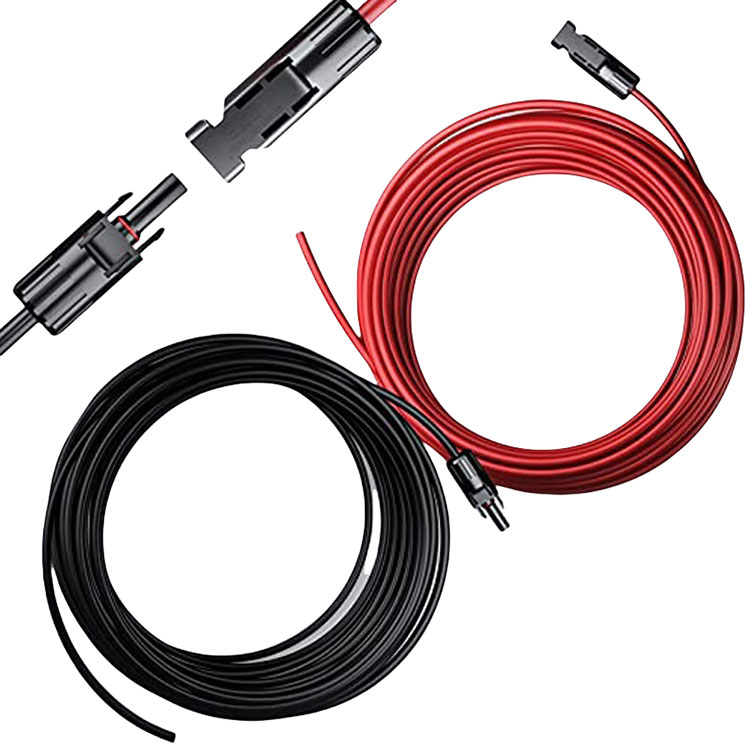What Are The Common Mistakes When Choosing Solar Cables
2025-10-16
Selecting the right components is crucial for an efficient and safe solar power system. While much attention goes to panels and inverters, the solar cables are often overlooked, leading to common and costly mistakes. Using inferior or incorrect cables can result in power loss, safety hazards, and increased long-term costs. This guide will help you identify these pitfalls and understand why PAIDU Solar Cables are the intelligent choice for reliability and performance.
Top 5 Mistakes to Avoid
-
Ignoring Cable Size and Ampacity: Using an undersized cable is a frequent error. A cable that cannot handle the system's current will overheat, causing significant voltage drop and energy loss, and potentially becoming a fire hazard.
-
Neglecting UV and Weather Resistance: Not all cables are built for outdoor exposure. Cables lacking robust UV and ozone resistance will degrade, crack, and fail prematurely, requiring expensive replacements.
-
Choosing the Wrong Insulation Material: Using standard PVC cables instead of dedicated cross-linked polyethylene (XLPO) insulation made for solar applications can lead to insulation breakdown in high-temperature environments.
-
Overlooking Proper Certifications: A critical mistake is not verifying independent certifications. Quality cables must meet international standards (e.g., TÜV, UL) to guarantee safety and durability.
-
Compromising on Conductor Quality: Opting for cables with copper-clad aluminum (CCA) instead of pure, tinned copper conductors leads to higher resistance, oxidation, and poor performance over time.
Why PAIDU Solar Cables Stand Out
PAIDU Solar Cables are engineered to directly address these common mistakes. Our product parameters are designed for maximum efficiency and longevity.
Key Product Parameters of PAIDU Solar Cables
| Parameter | Specification | Benefit to You |
|---|---|---|
| Conductor Material | 100% Tinned Copper | Ensures excellent conductivity, prevents oxidation, and provides superior corrosion resistance. |
| Insulation & Jacket | Premium XLPO (Cross-linked Polyethylene) | Offers outstanding protection against UV radiation, ozone, extreme temperatures (-40°C to +120°C), and abrasion. |
| Certifications | TÜV Certified, IEC 62930 Standard | Guarantees the product meets rigorous international safety and performance benchmarks for solar applications. |
| Voltage Rating | 1.8kV DC | Ideal for the high DC voltages encountered in modern solar panel arrays. |
| Core Type | Single Core with Fine Stranding | Provides exceptional flexibility for easy and safe installation in conduit or cable trays. |
Solar Cable FAQ Common Problem Guide
Q: What is the difference between a standard electrical cable and a dedicated solar cable?
A: The primary differences lie in the insulation material and construction. Standard cables often use PVC, which degrades under prolonged UV exposure and high DC voltages. Dedicated solar cables like those from PAIDU use XLPO insulation, which is specifically formulated to withstand harsh sunlight, extreme temperatures, and the specific demands of DC power, ensuring long-term system safety and reliability.
Q: How long can my solar cable run be before I experience significant voltage drop?
A: Voltage drop depends on the cable's thickness (cross-sectional area, e.g., 4mm², 6mm²) and the system's current. For a typical residential system, it's best to keep the voltage drop below 3%. Using a high-quality, correctly sized PAIDU cable minimizes this loss. A professional installer can calculate the optimal length and size for your specific setup to maximize energy harvest.
Q: Can I use copper-clad aluminum (CCA) cables for my solar installation?
A: It is strongly discouraged. While CCA cables are cheaper initially, they have higher electrical resistance than pure copper. This leads to more energy loss as heat, reducing your system's overall efficiency. Furthermore, aluminum is prone to oxidation and corrosion at connection points, which can create hot spots and pose a serious fire risk over the system's lifespan. PAIDU's use of 100% tinned copper ensures a secure, stable, and efficient connection.
Investing in high-performance PAIDU Solar Cables is not an expense; it is an investment in the safety, efficiency, and durability of your entire solar energy system. By avoiding common selection mistakes and choosing a certified, robust product, you secure the long-term return on your solar investment.



